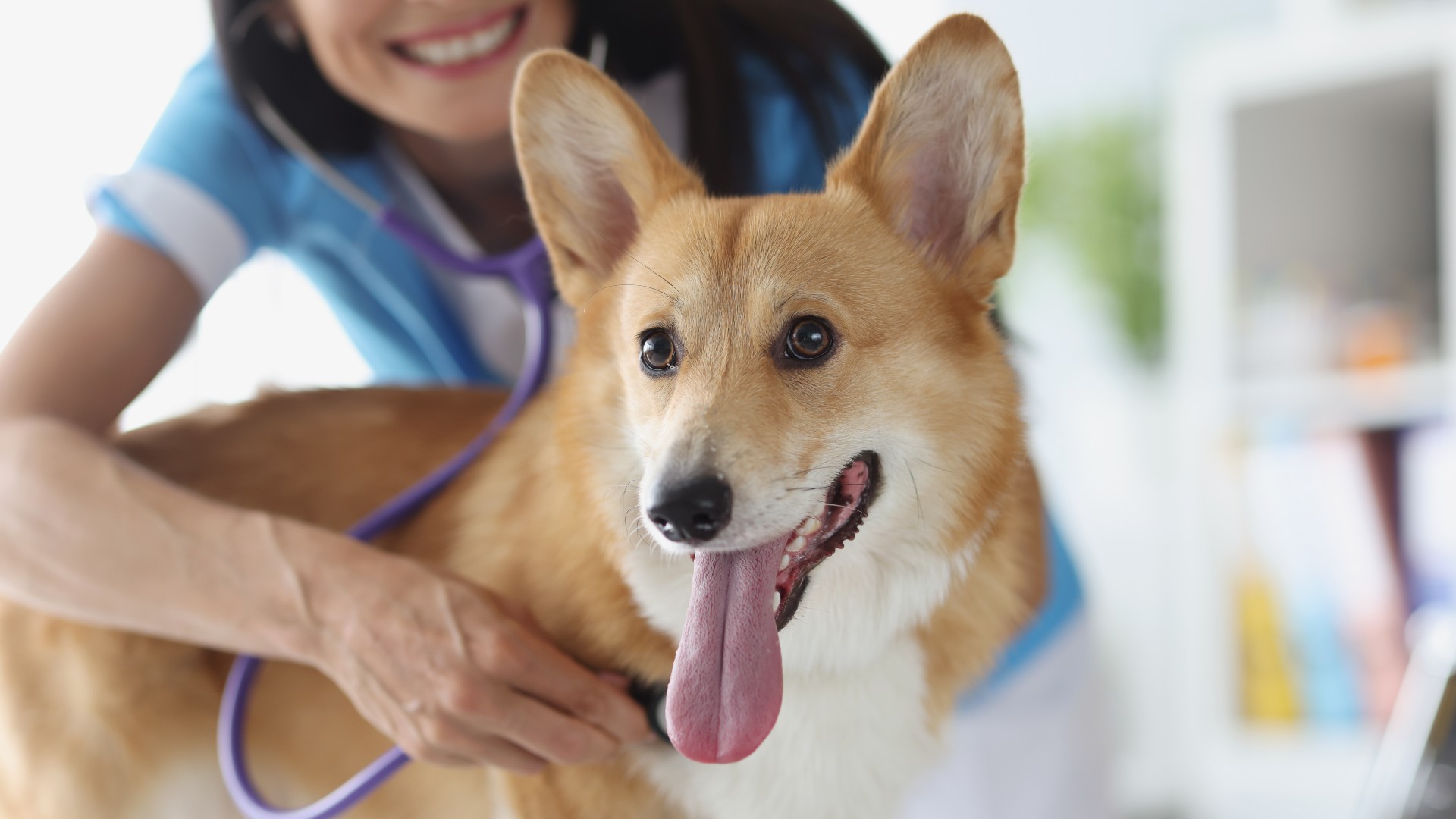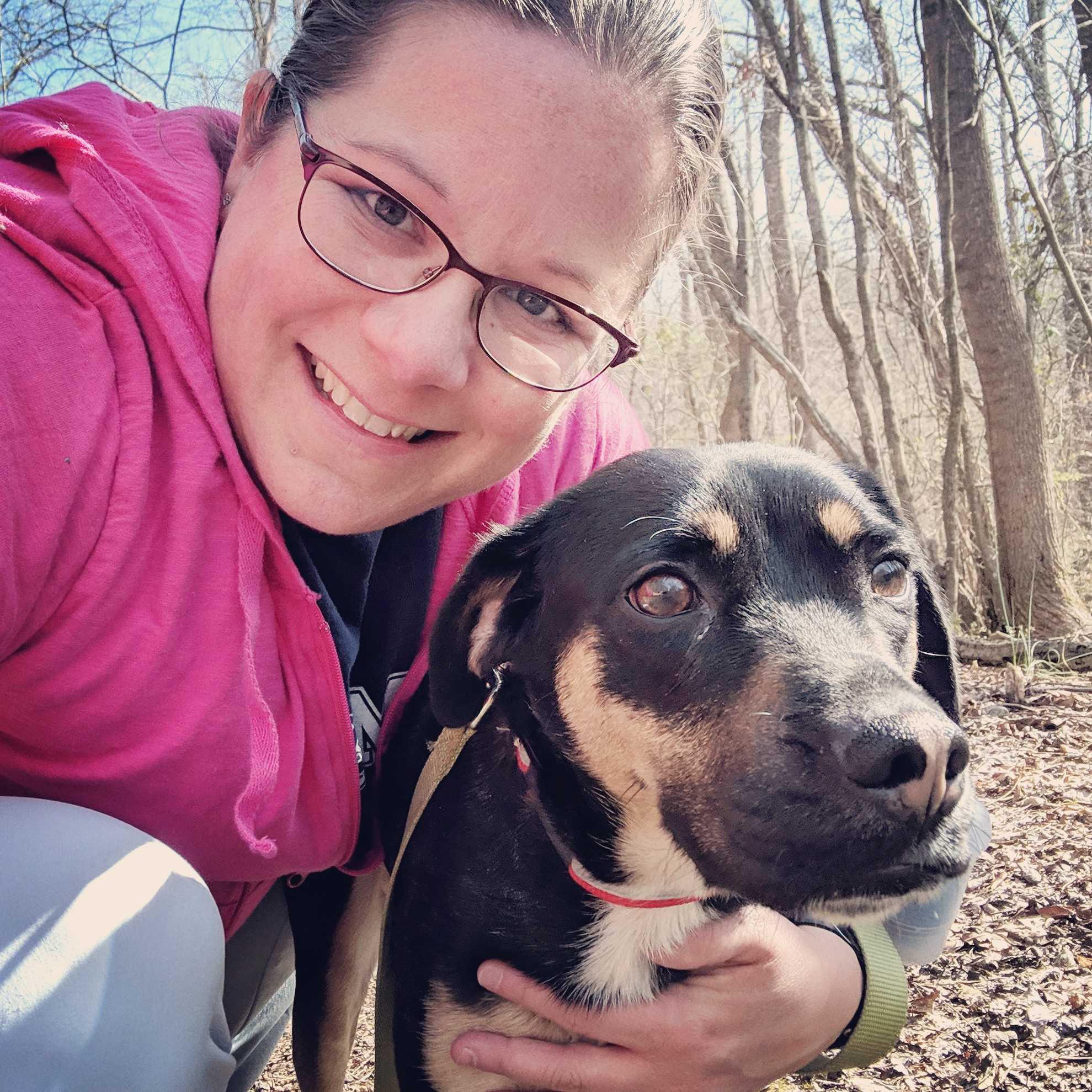Why is my dog coughing? A vet answers…
Nearly every dog owner will someday ask, “why is my dog coughing?” All dogs cough occasionally, but when is it serious? Read on to find out!

Get the best advice, tips and top tech for your beloved Pets
You are now subscribed
Your newsletter sign-up was successful
There are a variety of contexts in which you might ask, “why is my dog coughing?” Whether it’s a new cough or a change in the frequency or severity of a chronic cough, there are many potential causes of canine coughing.
Determining the cause of your dog’s cough will likely require a veterinary visit, which is necessary in order for your dog to receive appropriate treatment. Fortunately, the cost of a veterinary visit and required diagnostic testing is typically covered by the best pet insurance.
Below, you’ll find everything you need to know about why your dog is coughing, including when to be concerned, how long you should wait before calling the vet, and how you can help your dog with their cough.
Should I be concerned about my dog coughing?
ust like humans, most dogs experience an occasional cough. Maybe they inhaled something while sniffing the ground, or maybe some food or water “went down the wrong pipe,” as we sometimes say. The challenge, as a dog owner, is distinguishing those insignificant coughs from coughs that warrant further investigation.
While an occasional cough is nothing to worry about, recurrent coughing can indicate a problem. Kennel cough in dogs, a viral or bacterial upper respiratory infection, can cause a relatively sudden onset of a new cough. Dogs with kennel cough often have a dry or hacking cough, and they may look or act as though there is something stuck in their throat. This coughing can persist for days or even weeks, especially without treatment.
Even a cough that comes on gradually, or a gradual increase in the frequency of a chronic cough, should be regarded as a cause for concern. Chronic coughing can be the only sign of conditions such as chronic bronchitis, heartworm disease, or other heart and lung conditions.
While a single cough usually isn’t an issue, an especially violent coughing episode can be a red flag. In some cases, a gag or retch may look like a cough. A dog throwing up yellow foam may cough before or after vomiting, but their primary issue is vomiting, not coughing. A dog that gags or retches without the production of vomit is especially concerning, because this can be a sign of bloat. (See What is bloat in dogs? for more information.)
Get the best advice, tips and top tech for your beloved Pets
When should I take my coughing dog to the vet?
A new onset of coughing or worsening of a persistent cough should be seen by a veterinarian. Call your veterinarian’s office to schedule an appointment at the first available opportunity.
An acute onset of serious coughing, especially if your dog is struggling to breathe or you are worried about the possibility of bloat, warrants immediate veterinary attention. This may require taking your dog to an emergency veterinarian, if your veterinary hospital is closed or otherwise unable to provide care for your dog.
If you’re ever in doubt regarding whether your dog needs veterinary care, contact your veterinarian (or an emergency veterinarian, if your regular veterinarian’s office is closed). They can help guide you regarding the best course of action for your coughing dog.

How can I help my dog with his cough?
Effective treatment of a cough requires an accurate diagnosis. Your veterinarian will perform a thorough physical exam, and may perform additional tests such as bloodwork, chest radiographs (x-rays), and other diagnostics. Once the cause of your dog’s cough is determined, your veterinarian will be able to recommend appropriate treatment.
Medications prescribed by your veterinarian may include antibiotics, steroids, cough suppressants, diuretics, or other medications. Each of these medications can be used to alleviate coughing, depending on the underlying cause of your dog’s cough. Giving these medications as directed should aid in the resolution of your dog’s cough.
In addition to giving medications prescribed by your veterinarian, there may be things that you can do at home for supportive care. For example, many coughing dogs also have a decreased appetite.
Once your veterinarian has performed a thorough evaluation and ruled out 11 things to check when your dog is not eating, your veterinarian can recommend steps to increase your dog’s food intake, such as offering an extra-tasty canned food. It’s important to talk to your veterinarian before making any sudden diet changes, though. The last thing you want is to cause your dog to have diarrhea, and some foods may be inappropriate for dogs with heart failure or other medical conditions.
Can you get cough medicine for dogs?
Your veterinarian may prescribe a cough suppressant for your dog, depending on the underlying cause of your dog’s cough. If so, use this medication as directed to provide relief for your dog while minimizing the risk of side effects.
Avoid giving human over-the-counter cough suppressants unless specifically directed to do so by your veterinarian. Many human cough medications contain ibuprofen, acetaminophen, pseudoephedrine, and even xylitol, all of which can be toxic to dogs. Giving one of these medications may do far more harm than good.
Summary
As you can see, there are many potential causes of coughing in dogs. Some causes are relatively mild and self-limiting, while some causes of coughing can be life-threatening if untreated. An accurate diagnosis is key to providing effective treatment, so your coughing dog should be seen by a veterinarian in a timely manner.
Read next about pneumonia in dogs
Dr. Barnette is a graduate of the University of Florida, where she received both her B.S. in Zoology and her Doctor of Veterinary Medicine (DVM). She has 15 years of clinical experience as a small animal veterinarian, treating dogs, cats, and occasional exotic patients. She now works as a freelance veterinary writer, creating educational content for veterinarians, veterinary team members, and dedicated pet owners. Dr. Barnette lives in southwest Florida with her husband and daughter (plus two cats, a dog, and a rescued dove!) and enjoys kayaking, biking, and hiking. Learn more about Dr. Barnette at www.linkedin.com/in/catherinebarnette.

